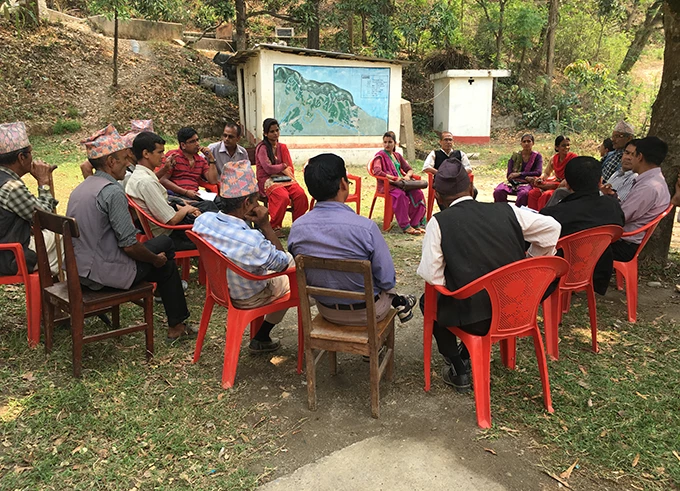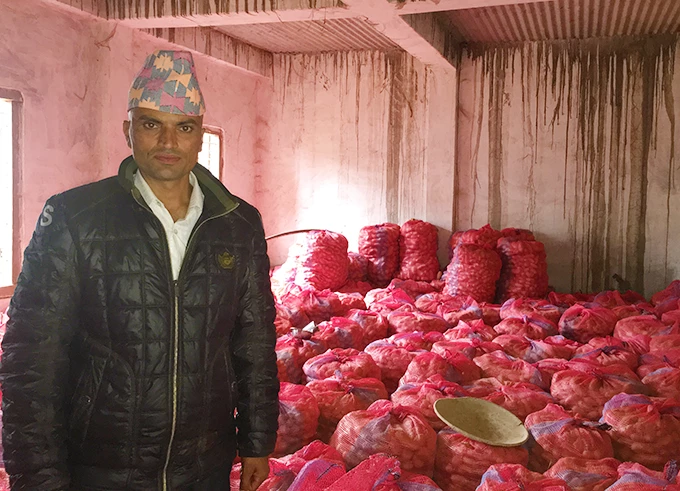
In Nepal, the Jagattradevi and Tulsibhanjyang areas of the Syangja District are rapidly emerging as leading producers of seed potatoes -- whole or parts of potatoes intended to be re-planted as seeds -- which have traditionally been imported, mostly from India, to meet growing local demand.
Importing seeds from India is costly and time consuming. Therefore, producing seeds domestically is not only a lucrative activity but also a necessity for Nepali farmers, who are also dedicated to growing high-quality seed potatoes.
The Irrigation and Water Resources Management Project (IWRMP) has helped kick start the sustainable production and supply of this important food and cash crop. Since 2008, IWRMP has benefitted about 1,100 households and contributed to improving agriculture productivity and management of selected irrigation schemes in Nepal.

Boosting crop productivity
Access to water in the Syangja District goes as far back as 1993-94. Yet, farmers were not able to take full advantage of irrigation water to grow cash crops. IWRMP changed this: During a recent visit to the area, local farmers told me that the productivity of key staples such as rice, wheat, corn and potato had gone up from 35 to 55 per cent. And now, farmers are also producing cash crops such as tomatoes, bittergourds, bottlegourds, cauliflowers, cowpeas and beans. This helped them earn an average of NPR 20- 30,000 thousands (US$186- 280) per season.
“Imagine, just a few years ago we were importing potato from outside. Today we are one of the major sources for potato,” says Rum Lal Kandel, one of the farmers in Syangja.
Reversing youth emigration
The success of the initiative doesn’t just stop there. The project has lured Nepalese youth back into agriculture and farming. Some of the local youth, who would have otherwise emigrated abroad in search of employment opportunities have now taken an interest in cash crop farming and stayed in Nepal.
“We are generating as much or more income than our friends who have migrated abroad from our villages. Our capacity has been strengthened through this program and we all are very thankful to it. We are doing really well and we have educated our children with the income from the crops. We have the capacity to work in our own country and this has motivated the youth to work in agriculture,” says Mr. Kandel.
It was reassuring to see that the young population is dedicated to making their lives better by working in their own country and also developing their villages as a result.


Join the Conversation